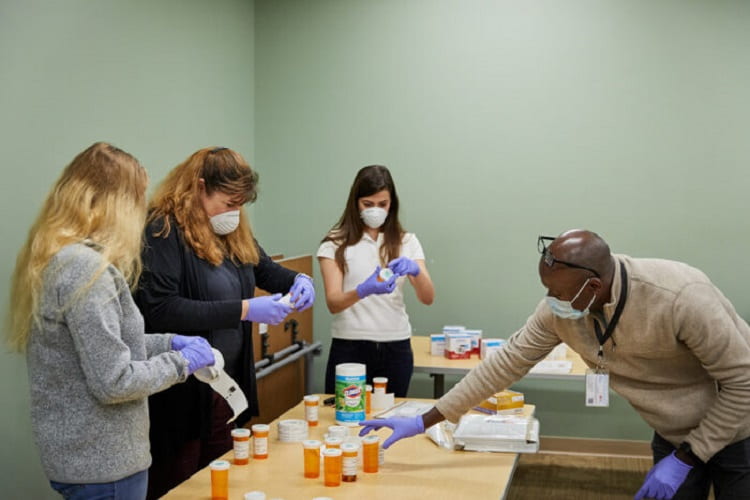Researchers at Washington University School of Medicine in St. Louis are launching a clinical trial in patients who have tested positive for COVID-19 but who are not sick enough to be hospitalized. The trial is investigating whether the antidepressant medication fluvoxamine, which is currently used to treat patients with obsessive-compulsive disorder (OCD), can be repurposed for COVID-19. The drug is thought to reduce the onset of a second phase of COVID-19 infection: a life-threatening overreaction of the immune system that leads to what’s called a “cytokine storm.”
Fluvoxamine, which is in the class of drugs called selective serotonin-reuptake inhibitors (SSRIs), also interacts with a protein important to the body’s inflammatory response. This effect may help relieve an overwhelming immune response, which is thought to occur in about one in seven COVID-19 patients, who then often end up hospitalized, and sometimes on ventilators, with a higher risk of death.
“Using a psychiatric drug to treat COVID-19 may sound counterintuitive, but it’s no more counterintuitive than using a malaria drug,” said Eric J. Lenze, MD, the Wallace and Lucille Renard Professor of Psychiatry and the study’s principal investigator. “This drug has been around for decades, so we know how to use it safely. If effective, it could be an ideal drug to repurpose for outpatients with COVID.”
Researchers at the University of Virginia showed last year that fluvoxamine reduced damaging aspects of the inflammatory response during sepsis and protected mice from lethal septic shock. Washington University researchers were drawn to study fluvoxamine because it binds to the sigma-1 receptor on immune cells that regulates inflammation by inhibiting the production of cytokines, molecules released by certain cells in response to infection.
COVID-19 appears to have two key phases, said co-investigator Caline Mattar, MD, an assistant professor of medicine in the Division of Infectious Diseases.
“The first is caused by the viral infection itself, which gives people a fever and a cough and makes them feel ill, among other symptoms,” Mattar said. “The information we have so far suggests that the second phase of the illness can involve a life-threatening inflammatory reaction — what we call a ‘cytokine storm.’ We want to learn whether fluvoxamine might help prevent that second phase of the illness.”…
…For more information, please call 314-747-1137, visit the study website at stopcovidtrial.wustl.edu or e-mail stopcovidtrial@wustl.edu.
